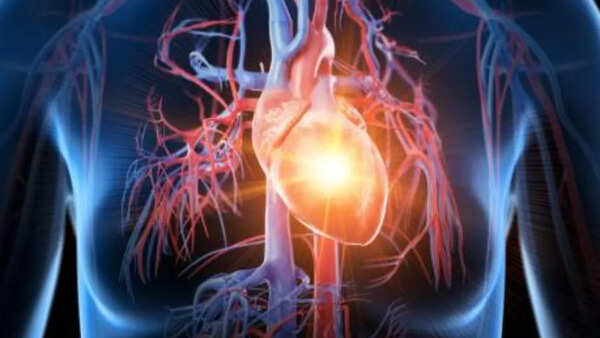Cardiologist says this one risk factor for heart failure, with deadlier consequences, is rarely diagnosed and often mistaken for hypertension

Heart failure is the leading cause of death in the US. According to the New York State Department of Health, about 695,000 people die of heart disease in the United States every year, making it the cause of 1 in every 5 deaths.Heart failure can happen due to a variety of conditions such as coronary artery disease, high blood pressure, cardiomyopathy, heart valve problems and habits such as smoking, obesity, excessive alcohol consumption and an unhealthy lifestyle. While most of these factors can be recognised and diagnosed within time for repair, a cardiologist on Instagram has enlightened netizens about one risk factor that remains undiagnosed for hypertension and other diseases, when actually it is a cause of heart failure. The cardiologist who goes by the id, heart_transplant_doc, revealed that amyloidosis- a protein that infiltrates the heart, stiffens it and gradually shuts it down from the inside out is a big risk factor for heart failure.He wrote in the caption how most people are misdiagnosed for years and are told that it’s “hypertension,” “age”, or “just back pain.” The clues for the condition he shared were “thick walls on echo,” “low voltage on EKG,” “Carpal tunnel,” “Spinal stenosis,” and “fatigue that doesn’t make sense”
What is Cardiac Amyloidosis ?

Image credits: Getty Images
According to the National Library of Medicine, cardiac amyloidosis is a frequently underdiagnosed condition that demands a high index of clinical attention. It happens due to the extracellular deposition of insoluble proteins where amyloid fibrils accumulate in the spaces between myocytes, leading to cellular damage, impaired performance and increased stiffness (as stated by the doctor). It is the most common type of restrictive cardiomyopathy.
What are the symptoms of cardiac amyloidosis ?

Image credits: Getty Images
Symptoms of the condition overlap with those of heart failure including fatigue, dyspnea, orthopnea, lower limb swelling and abdominal distension. Patients may experience palpitations, chest pain and musculoskeletal manifestations such as tingling and numbness in the thumb, index, middle and half of the ring finger, along with wrist pain.On physical examination, general findings may include blood pressure revealing hypertension, muffled heart sounds, periorbital edema, high jugular venous pressure, pedal edema and macroglossia.Even the National Library of Medicine website states that the condition is rarely diagnosed and needs a high degree of clinical suspicion. Thus, people experiencing any such symptoms must consult a doctor to check for the condition.Disclaimer: This article is for informational purposes only and is not intended to serve as medical advice or replace professional consultation, diagnosis, or treatment.




